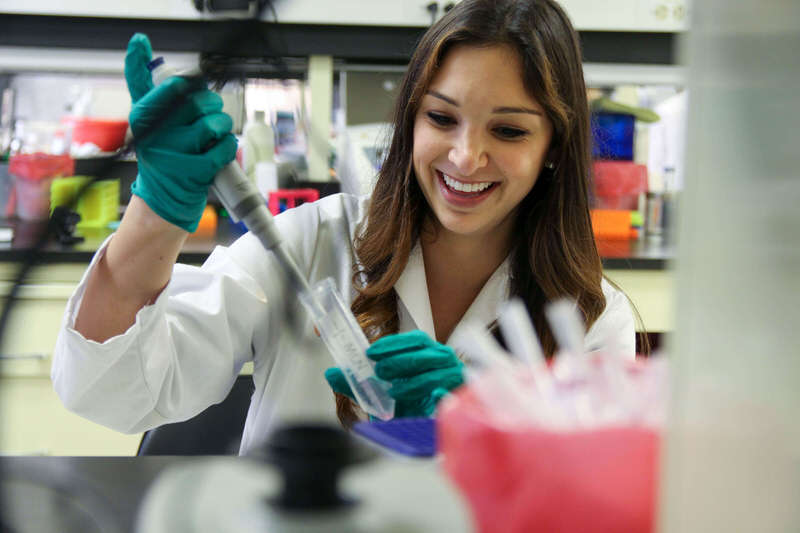Cassidy Daw Receives Two Grants

 Cassidy Daw, a student in the Molecular Immunology & Microbiology discipline of the Integrated Biomedical Sciences program, has received two grants.
Cassidy Daw, a student in the Molecular Immunology & Microbiology discipline of the Integrated Biomedical Sciences program, has received two grants.
She is in the lab of Dr. Madesh Muniswamy where she is working on applying basic discoveries about mitochondrial biology to other areas of research.
“My work involves studying the role of LPS-induced lactate elevation on mitochondrial dysfunction,” she explained. “Given the association of lactic acid with many pathological conditions, I am actively applying our cellular signaling discovery (lactate-dependent mitochondrial magnesium dynamics) in the context of sepsis, acute inflammation, and the downstream impacts on immunometabolism.”
Daw explained that these studies will reveal the role of lactate-induced mitochondrial-mediated magnesium transport on cellular, immune, and organ function.
The first grant that Daw was awarded was the NIH T32 Graduate Research in Immunology Program (GRIP). The program fosters and integrates research and training in molecular and cellular mechanisms of innate and adaptive immunity, B and T cell biology, antibody gene expression and epigenetics, immunology of aging, autoimmunity, microbial pathogenesis and cancer immunology.
“Receiving this award is an incredible honor, and will enable me to combine my knowledge from my master’s degree in Immunology and Infection and mitochondrial biology,” she said. “It will allow me to investigate how mitochondrial-mediated magnesium uptake controls mitochondrial bioenergetics, and the contribution to acute and chronic inflammation, and cellular metabolism.”
The second grant that Daw was awarded is the Translational Science Training (TST) TL1 Program, which enhances the quality and scope of the doctoral research experience at UT Health San Antonio by offering interdisciplinary research training and mentorship in translational science.
“Being awarded the prestigious TST TL1 is amazing. With this funding, I will be able to study the modulation of mitochondrial magnesium and the effect on cellular bioenergetics and organ function in conditions associated with increased levels of lactate, such as septic shock,” she said. “Additionally, I will be able to gain first hand knowledge and skills of ongoing translational science research.”
Daw is excited because these awards will provide support for research and travel funds to continue innovative experimental approaches. Additionally, these awards will initiate her entry into the process of obtaining peer-reviewed research funding, which is vital for the development of her scientific independence.
Within the next year, she plans to apply for an F31 grant, and following graduation, she plans to apply for the Institutional Research and Academic Career Development Award (IRACDA) as a postdoctoral fellow.
“My ultimate career goals are to apply for K99/R00 to establish an independent laboratory, become a professor and incorporate interdisciplinary and collaborative approaches to public health solutions,” she said.
